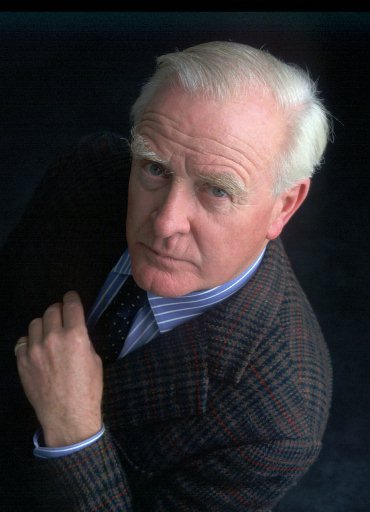Spymasters and John LeCarre
I was watching a piece on CBS News Sunday with the title of ‘based on a novel by . . . “
 It featured none other than the master spymaker, John LeCarre. Few of us can forget the Cold War and the novelists whose stock-in-trade were those “spies” who applied their craft, and by doing so kept us safe.
It featured none other than the master spymaker, John LeCarre. Few of us can forget the Cold War and the novelists whose stock-in-trade were those “spies” who applied their craft, and by doing so kept us safe.
LeCarre, in 22 novels, revealed the frailties of the human condition and exploited it, building up tension in the reader with characters that lived in the shadows, dark and mysterious. LeCarre, along with Len Deighton, Frederick Forsyth, and Ken Follett showed us the face of British counter intelligence.
Gradually, US spy novelists came to par in the genre created and dominated by British writers. The Scarlatti Inheritance caused Robert Ludlum to be regarded as the first American spymaster. In the 1970s, former CIA operative Charles McCarry began the Paul Christopher series with The Tears of Autumn. The first American techno-thriller was Clancy’s The Hunt for Red October. It introduced CIA analyst, turned field agent, Jack Ryan.
With the end of the Cold War the genre went on hiatus. Spies lost their luster and relevance. No secrets needed exposure, or so we thought . . .! To survive, the novelists had to re-invent themselves. They brought us different stories, historical fiction, even romance.
Meanwhile new menaces emerged . . . terrorism, bio-terrorism, rogue states, jihad, and radical fundamentalism, to name a few. All at once we needed more reliable intelligence, and boots on the ground. We needed new “SPIES!” As Russia emerged from the ashes of the former Soviet Union, and former head of the KGB Vladimir Putin took power, the GRU was born, and the CIA, MI6, and the Mossad are reclaimed from the trash heap of history, and . . .
Novelists start writing again, applying their craft. At the CIA, the number of manuscripts submitted for pre-publication vetting doubled between 1998 and 2005.
New titles by LeCarre, Forsyth, Clancy and McCarry appear, while newcomers Vince Flynn, Brad Taylor, Howard Gordon, Stephen Hunter, Brad Thor, Steve Berry, Grant Blackwood, Alex Berenson, Jack DuBrul, and others top all booklists, claiming the literary prizes. Even though Robert Ludlum is no longer with us, Eric Van Lustbader has kept Jason Bourne amongst the living, and Don Winslow has revived a storyline originated by Trevanian.
New authors apply their skills, bringing first hand knowledge such as in Lt. Col. (ret.) Brad Taylor’s explosive debut thriller, One Rough Man. Gideon’s War, written by Howard Gordon (the producer of the hit TV series 24) brings another fresh voice to a proven genre.
This leaves us, fans of spy thriller, with a vast new library of thrillers. So, come in from the cold, the reading is fine!
– John




